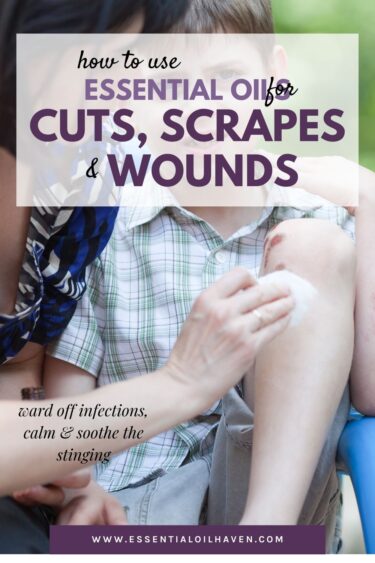 Cuts, scrapes, and minor wounds are something we all face quite often. Even if you are being extra careful, they can’t be avoided all of the time.
Cuts, scrapes, and minor wounds are something we all face quite often. Even if you are being extra careful, they can’t be avoided all of the time.
Sometimes it’s a small accident with the kitchen knife, or the razor blade slips a little while shaving… Maybe your child has fallen down on the playground and gets a little road rash on his knee.
A little cut or bruise sometimes happens quicker that you can say O-U-C-H! They are a part of daily life.
This post contains affiliate links, which means if you make a purchase through these links, I may receive a small commission at no extra cost to you. Read my full disclosure policy here.
PLEASE NOTE: Most minor wounds heal on their own. However, significant cuts, larger scrapes or deeper gashes often need medical attention and should get looked at by your physician or the emergency room personnel. If you have a cut that’s more serious, deep cuts will be closed with stitches to get rid of the danger of infection and make sure of appropriate healing. Please check yourself in to your nearest local emergency room.
Minor wounds usually aren’t anything serious, but it’s important to wash them, especially if you plan to apply essential oils to them afterwards.
Start by rinsing the cut with clean water (straight water of with a clean cloth if you like), to ensure there isn’t anything inside of it. Most small cuts or scrapes will stop bleeding in a reasonably short amount of time.
Why Essential Oils Help Cuts and Scrapes
Essential oils are highly concentrated oils extracted from different species of plants; and an excellent home remedy for people who wish to use help from natural means. They contain the “immune system of the plant”, hence when distilled and extracted properly, they yield medicinal and therapeutic properties.
Most essential oils have antiseptic properties, which means the oil prevents the growth of disease-causing microorganisms. This is no surprise given the idea that the extracted oil contains the plant’s immune system. Of course it wants to fight bacteria, that’s what an immune system does.
Not only can essential oils disinfect the wound, they can also aid in wound healing by way of slowing down the bleeding, alleviating stinging or pain, counteracting future scarring, and reducing inflammation. In general, these natural oils are great for small wounds, cuts or scrapes.
Which Oils Should I Use On My Wound?
After your wound is cleaned, here are the top 7 essential oils you can apply, why they work, and how you can combine them for best effect. For a quick recipe, use 3-4 drops of oils to 1 teaspoon of carrier oil such as Fractionated Coconut Oil (FCO) or Sweet Almond oil:
1. Myrrh
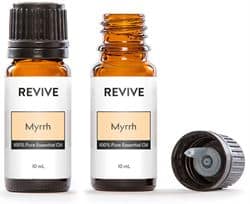
Myrrh is made from resin of the Commiphora myrrha tree.
Shop Here
Anytime someone has an open wound, I think of Myrrh! Greek soldiers used it in the battlefield to disinfect their wounds and stop them from bleeding. This is exactly what I want to do when I have a scrape or cut. So I go find my bottle of Myrrh.
Don’t be alarmed if your Myrrh essential oil pours slowly, or if you have a hard time getting a drop out of your bottle. This is completely normal. Myrrh is made from resin of the tree and is inherently quite sticky and slow-flowing.
Since Myrrh also has a quite distinct smell, I tend to blend Myrrh with a more palatable scent, such as Lavender, Lemon or Peppermint – all of which are also great for treating little ouchies (read on for details). Creating a DIY recipe or blend to treat your wound is actually a great practice! Use a blend of 3-5 different oils to get the best balance of help available for your cut or scrape.
- Here’s why you should blend your oils.
2. Tea Tree
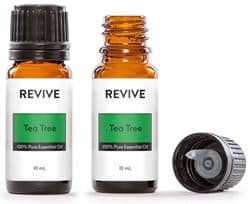
This Tea Tree Oil from REVIVE is absolutely amazing!
Check Price
If you don’t have Myrrh at home, Tea tree oil is also a great start to protect your open wound. You definitely want Tea Tree on your wound to ward off infections. It helps to establish a barrier to keep bacterial and viral invaders out of the blood stream.
Its antiseptic, antimicrobial and anti-fungal properties lessens the chance of possible infection and bacteria in your wound. Tea tree oil destroys harmful microorganisms, that if left untreated, could cause ugly infections in your cut. It may also help to soothe the itchiness, burning, and redness that frequently comes alongside wounds and scars.
Tea tree is one of those all-around powerful essential oils that has enjoyed much publicity in the alternative health and medicine circles. It has become a natural ingredient in all kinds of cosmetic products such as face soaps, shampoos and ointments. This oil is also wonderful to help treat acne.
3. Lavender
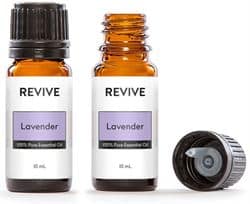
Lavender from REVIVE Oils
Shop Here
Lavender oil is an absolute powerhouse in the world of essential oils, too. It will assist in speedy healing of cuts and scrapes.
Not only will it disinfect the wound, it will also aid in calming and soothing the stinging, pain or itching that goes along with an open sore on your skin. Since Lavender is such a gentle oil, it’s a perfect home remedy for kids as well. Personally, I also use a Lavender roll-on for insect bites, taking away the stinging and burning sensation almost immediately.
Stocking up on Lavender isn’t expensive. It’s an easily accessible oil and absolutely worth the spend to have on hand. It smells heavenly and works wonderfully!
4. Helichrysum
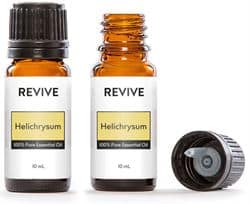
Helichrysum is great for many skin conditions
Check Price
Helichrysum oil has many beautiful properties that you can use to treat almost any kind of skin condition. It disinfects bacteria and works especially well for injuries that are also bruised and swelling. If you’ve hit your ankle or leg with force on a sharp object so that you have open scrapes but also blue-green bruising underneath, use Helichrysum.
However, Helichrysum is a very expensive essential oil. To offer it affordably, Helichrysum is sometimes sold at a dilution with carrier oil (such as Jojoba), which is fair and still works great as a therapeutic home remedy.
But if you find a Helichrysum that seems too cheap to be true, please check the ingredient list to see if it’s pre-diluted. Using a pre-diluted Helichrysum for topical application is totally fine. But please do not use it in your diffuser. You don’t want to put carrier oils through your ultrasonic diffuser unit.
5. Frankincense
Frankincense essential oil helps to rejuvenate damaged skin. It is a great partner in any wound healing blend. It is one of the best skin healers in the world, right up there with Lavender and Helichrysum. I add it to almost all of my skin care blends such as this all-time favorite dry skin oil recipe.
If you’re intrigued by Frankincense, you can learn more about its 4 separate botanical varieties here.
6. Rosemary
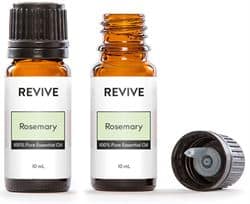
Rosemary is fresh and spicy.
Check Price
Rosemary essential oil shares a lot of traits with Lavender. It is a very regenerative oil and will help prevent infection in your cut. Rosemary has several chemotypes, the most common being ct. camphor, which reduces swelling and encourages circulation.
It has a strong, fresh, herbal and woody aroma and is a top-middle note. Beware though, it is a lot more uplifting than Lavender so don’t use it in the evening.
7. Chamomile
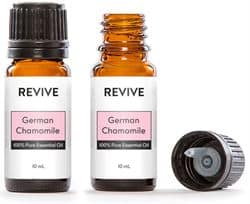
German Chamomile
Check Price
Chamomile comes in two popular species, German Chamomile (Matricaria recutita) and Roman Chamomile (Chamaemelum nobile).
Roman Chamomile is in general more gentle, so you’re reaching for essential oils for a cut or sore on a child, use Roman Chamomile. This essential oil is also balancing and calming to the spirit, so it can also help your little one to better deal with the emotional stress related to his or her injury.
German Chamomile is a light blue in color, so please note that if you’re applying it topically and are wearing light-colored clothing, it may leave stains if you’re not careful. That said, German Chamomile is a great skin soother and helps support your skin’s healing after a scrape.
Both varieties of Chamomile aren’t the cheapest oils, but don’t let that deter you. They are powerful beyond means and also find beautiful applications in other uses such as digestion, nausea and vomiting, and for kids’ well-being.
Essential Oils To Prevent Wound Scarring
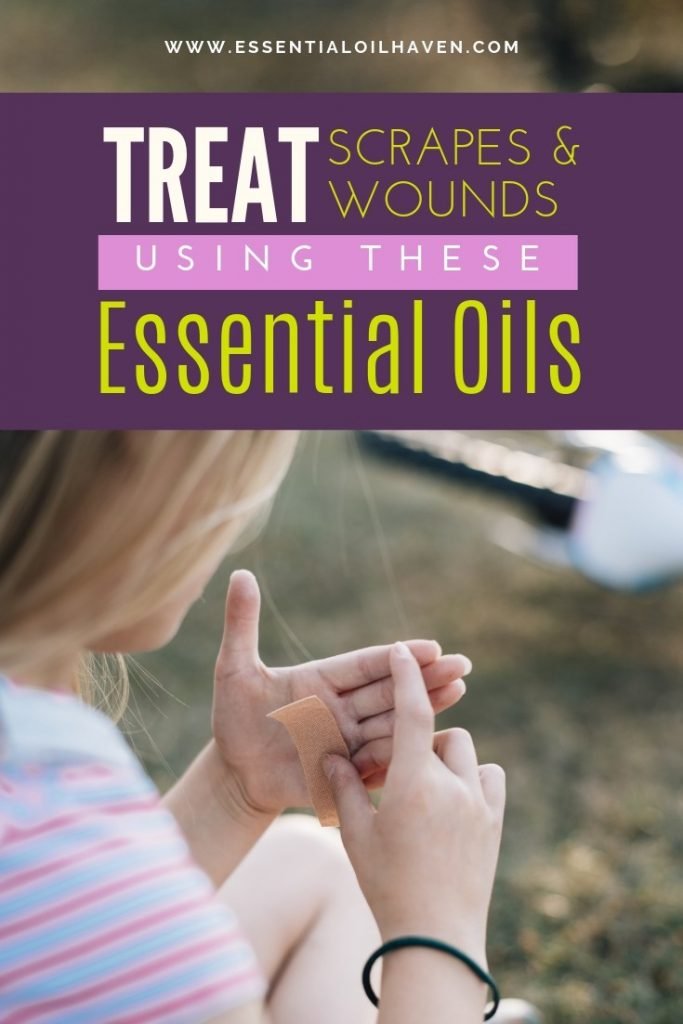
- Keep your scrape moist and clean. Not only does this help to speed up the healing, it will also decrease future scarring. Your skin needs a good moisture balance to heal itself and produce new skin. If you let it dry out, especially over a wounded area, the skin becomes much more susceptible to additional environmental stressors such as heat, cold, dry air, chafing or irritation. This may slow its healing process or interrupt it completely, leaving behind unwanted scars and blemishes.
- After the initial wound has healed for about 2-3 days, add wound-healing essential oils to your blend. Geranium works amazing to deeply heal scars.
- If your bruise won’t heal on its own, you will have to deal with the underlying cause before attempting to tackle any secondary bruising or infection that develops consequently. Contact your physician as early as possible if you believe you’ve got an infection.
Recipes For Cuts, Scrapes and Wounds
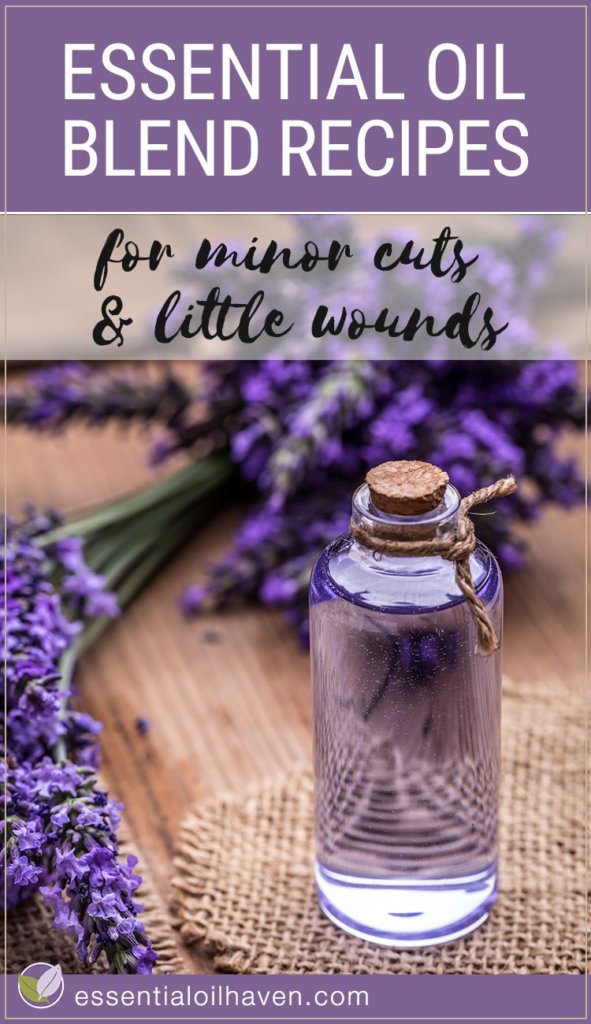
Here is what I recommend you use for home treatment of all sorts of little scrapes and cuts. BONUS: The “Scar Oil Blend” also works fantastically against itchy skin and dry skin conditions.
First Aid Blend
- 1 oz (30 ml) of Fractionated Coconut Oil
- 6 drops Myrrh
- 6 drops Frankincense
- 6 drops Lavender
Start by pouring the carrier oil into a 1 oz (30 ml) empty amber glass bottle (such as these ones here). Add essential oils, shake well. Apply it immediately to the scar. For best results, repeat every 2 hours for the first day. Back off frequency after that. After 2-3 days, switch to the “Scar Oil Blend” below, which adds scar-healing oils to the mix:
Scar Oil Blend
- 1/2 oz (15 ml) Hazelnut carrier oil
- 1/2 oz (15 ml) Sweet Almond carrier oil
- 6 drops Lavender
- 4 drops Helichrysum
- 3 drops Frankincense
- 2 drops Geranium (will make the blend smell quite sweet and somewhat minty)
Mix carrier oils in your amber glass bottle. Add the essential oils. Shake well before each use, and apply to the scar as often as needed – especially when you can feel it starting to itch!
What Do You Think?
How is your journey going with essential oils as a first aid helper? Have you found favorite blends for your scars and bruises? Let us know in the comments below!
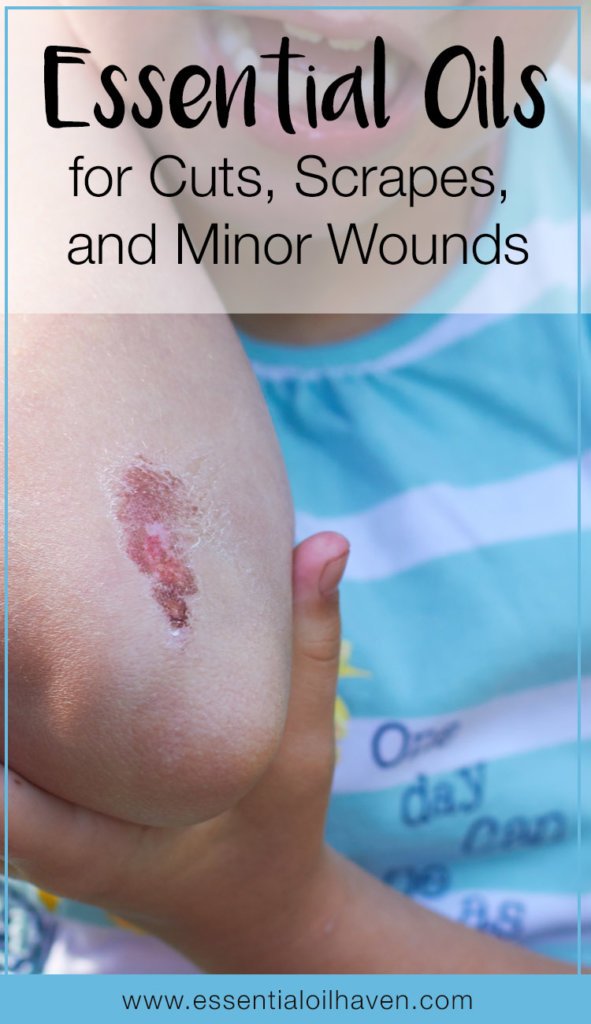



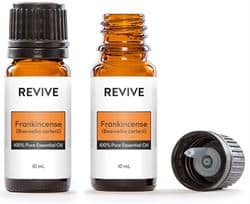



Hi if I wanted to use this to aid in healing after child birth which oils in specific would you recommend and why? Are there any that I should avoid.
Can your wound blend be used for a nasty lump on my dog’s paw?
Thank you for this site, getting lots of info from you.
Hi Cindy, thank you for your question. Aromatherapy can certainly be beneficial for dogs, but using oils on your pet requires special attention. Lavender essential oil is safe, as is Chamomile. So you could use those in the blend recipe. However, Tea Tree should not be used as it can have toxic reactions. You can find out more about essential oils on dogs in my write-up here. I definitely recommend further research before treating your pet, as they can’t speak to you on how it’s affecting them, and vet bills are expensive! So investing in a bit more research and perhaps an Amazon Kindle eBook might be a worthy approach. Hope this helps!
Hello and thanks for this article. Does the coconut oil have be ‘fractionated’ coconut oil?
Thanks
Hi, thank you for your question! The coconut oil doesn’t have to be fractionated, you can definitely also use solid coconut oil. That said, the fractionated kind is liquid and you can blend the essential oils into it a lot more easily. Solid coconut oil is just that – solid, thus it’s harder to blend the essential oils into it evenly. But both are a carrier oil and if all you have on hand is the cooking kind of coconut oil – by all means start with that!
If you were going to put it in a spray with witch hazel, what volume would you use for your healing and scar recipe? (6 Lavender, 4 Helichrysum, 3 Frankincense, 2 Geranium)
Good luck with your studies!!
Thanks so much Carole! For your recipe, I’d keep the base amount the same as with carrier oil in my recipe. So use 30 ml of witch hazel instead of 30 ml of carrier oils. That’ll equal the same dilution rate for the recipe, which is just under 2%.
I tried your recipe for wounds after taking a couple inches of skin off my leg and it getting infected. The first night with the salve helped ease some of the pain and tightness around the wound. After a week, the entire wound has healed. It’s still red, but there is no cut, scab, or infection at all anymore. I HIGHLY recommend this recipe. I now keep stashes of it around the house, just in case. Thank you.
Susan, thank you so much for circling back and letting me know your amazing testimonial. I am thrilled to hear you’ve found natural relief for your wound by treating them with essential oils. So happy to hear your success story! Thanks again.
Thanks so much for the information and the first aid recipe. I have type 2 diabetes, so my wounds take several weeks to heal. Well not anymore! I used your first aid recipe on my wound that was very fresh. It’s day two, and I can’t believe how much it’s healed. It’s about half the size! I’m so amazed! Thanks so much for the information you posted. It’s a life saver for me.
Joyce, I’m thrilled to hear that. That’s amazing! Thank you for taking the time and coming back here to post your story. It is so appreciated! 💖 I hope it encourages others to try out a natural recipe for wounds and scars.
Really good information! I have a question: what oils to use on wound that just won’t totally heal–the skin stays open and tender to the touch–want the wound to ‘skin over’ and heal. Can you please advise me on the oils to use?
Thank you much!
Hi Bruce, I would use a blend of Myrrh and Geranium essential oils, 2 drops each, to calm any inflammation in the wound and get it to start healing. Geranium balances out the resinous Myrrh, and also helps to alleviate pain around the injury.
I can’t thank you enough for your wound oil recipe. I have never seen a wound heal faster. Ten days ago I had a fall while cycling and hurt my knee, face and hand. I was using calendula as usual but was still really sore…until I started using the oil. I have slept better since using it, and following your advice. May God bless all your work.
That is amazing to hear Neia. Thank you for sharing! I am so glad. 💜